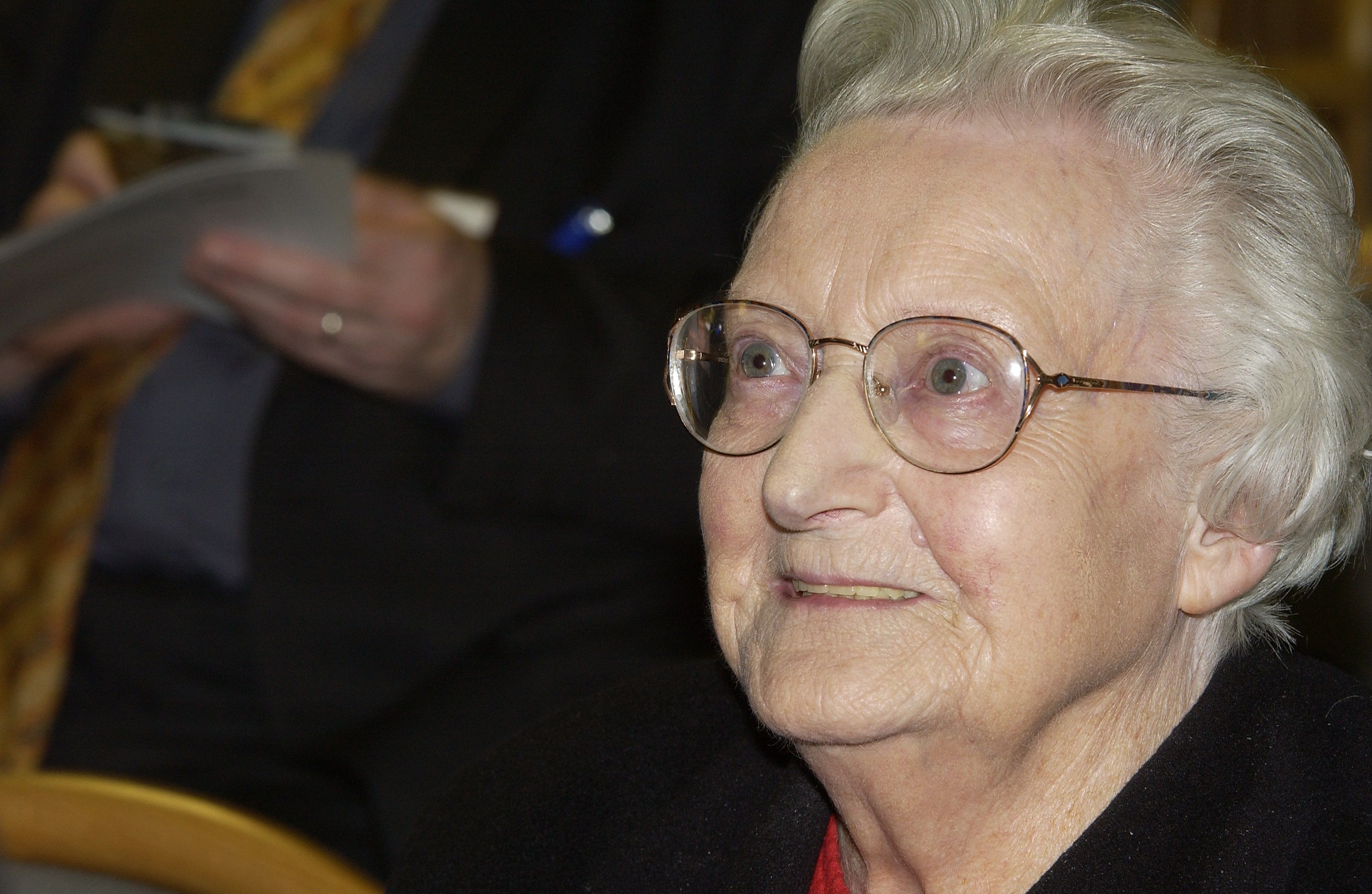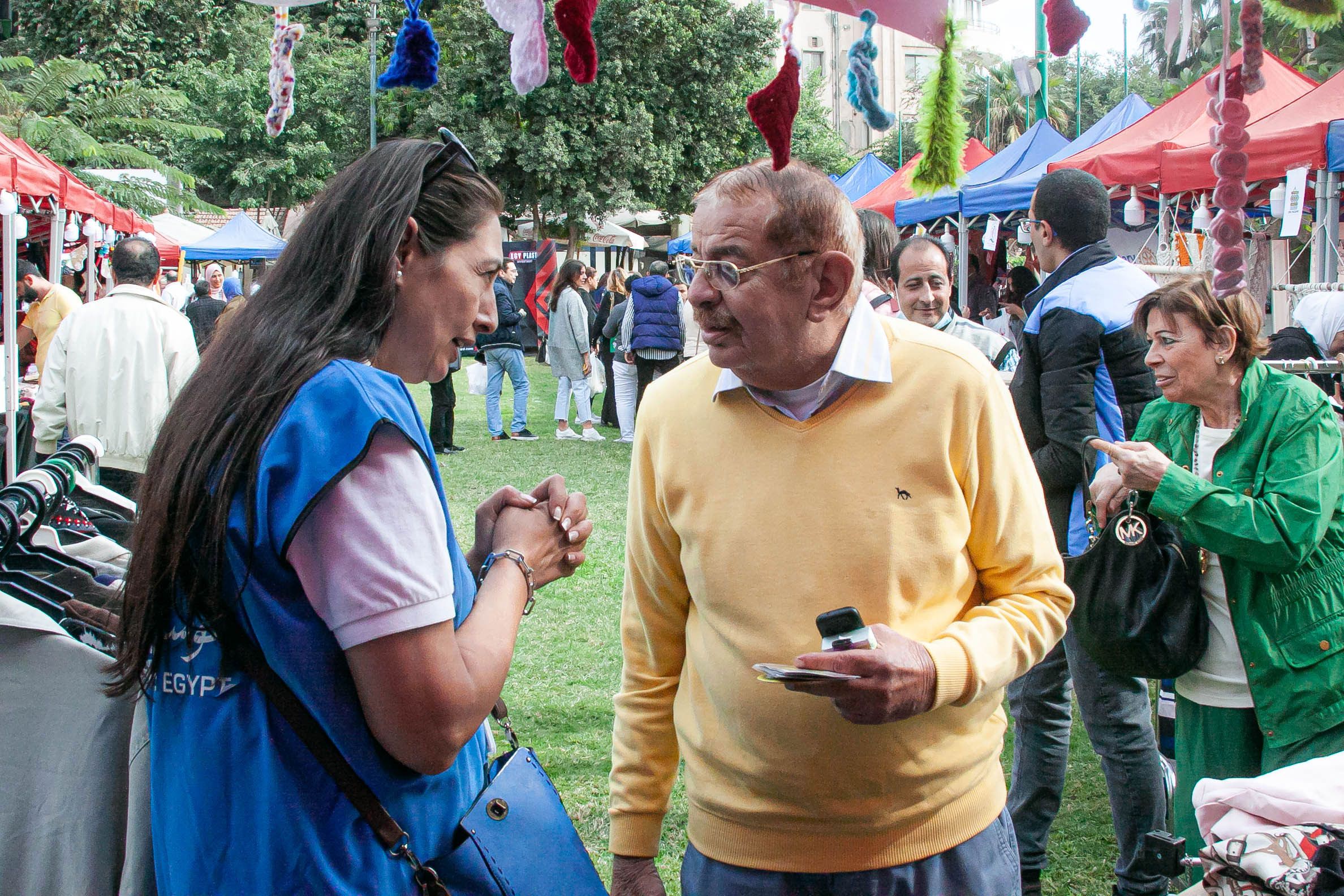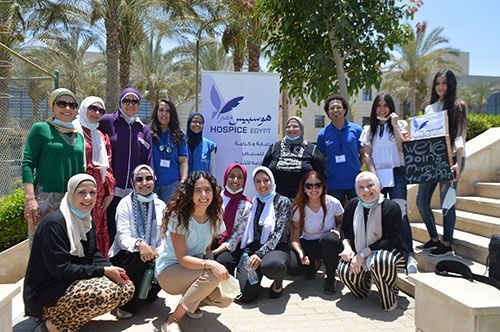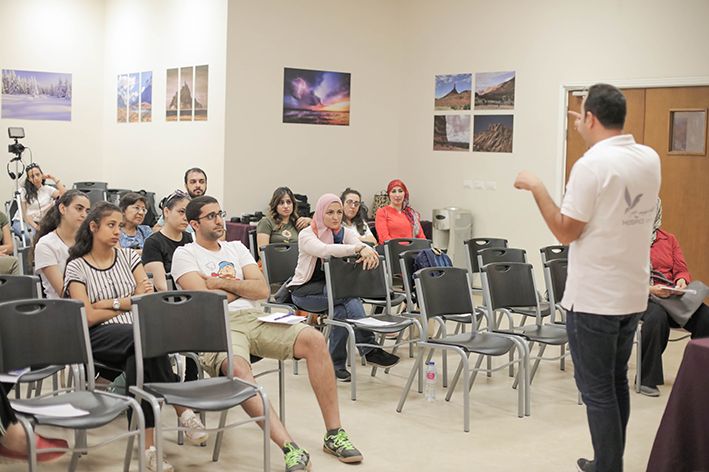Hospice care: Humanity still exists
Hospice care: Humanity still exists
What can patients do if their cases are terminal and they only seek to spend the rest of their lives in peace? How can the patient and his/her family make this difficult period easier when they only want to spend their last days with dignity, less pain, and surrounded with love and compassion? This is exactly what hospice care provides for terminally ill people.
Hospice is a unique kind of care that’s given to a person who is experiencing an incurable disease and nearing death, as well as to his/her family, so that he/she can live their last days with dignity and quality. Hospice care has two main aspects: medical and psychological. Medically, a team of doctors and nurses work together to manage the patient’s symptoms and make the pain more durable, while psychological care is provided to the patients and their families to deal with their ordeal.

Cicely Saunders/ cc via Wikimedia
‘David’s window’ in a hospice home
The modern idea of hospice care was introduced by the British nurse and social worker Cicely Saunders. In 1948, Saunders was assigned to care for a Polish patient named David Tasma. He was a 40 years old and was suffering from a very advanced cancer. As time went on, the two developed a deep relationship. David was alone in London without family and very few friends. As he was dying alone at the age of 40, he began having questions about the meaning of his life. As Saunders became very close to him, they shared ideas about love, religion and death. Once, he told her that he just wanted what was in her heart and mind, and she realized that she wanted to build a home for people like him where sincere medical, psychological and spiritual help is provided. David was really moved by Saunder’s dream, as he was looking for a meaning for his short life, and he told her that he would be “a window in your home.” When David died, he left money to Saunders, becoming the cornerstone of the modern hospice movement.
Hospice Egypt
Over the years, hospice care became a very important part of medical systems around the world, although it was not very well known in the Arab world. It was introduced in Egypt in 2010 when the JOSAAB Foundation launched the first hospice care project in Egypt, Hospice Egypt, which covers a wide category of people. “We serve terminally ill people aged 18 and above, regardless of their socio-economic class, gender or religion, completely free of charge,” Mario Milad, a field coordinator at Hospice Egypt, told Jusoor Post.
Hospice Egypt provides patients and their families with medical, nursing, psychological, social and financial support. Milad noted that Hospice Egypt also provides a unique service, which is supporting the patients’ families after the death of the patient. “If the patient was the family provider, we would support the family financially to begin a small business to help them live. In some cases, we gave the wives sewing machines and helped the sons and daughters to start small businesses even before the death of the patient to assure him/her that the family will be secure even after his/her passing,” he said.
Fulfilling patients’ last wishes
Part of Hospice Egypt’s programs is to fulfill the last wishes and dreams of the patients. “Sometimes the patients have small wishes. When they tell us about them in the visits, we try to help them to fulfill these dreams,” said Milad, adding, “Once, an old lady told us her wish to swim in the sea…a simple dream that meant a lot to her. We consulted her doctor, and he agreed. You can’t imagine how happy she was when we went to the sea. She died days later and I always remember her happy face.”

Fulfilling patients' last wishes/ cc via Hospice- Egypt
Obstacles on the road
According to Milad, about 250,000 people in Egypt are in need of hospice care, which requires facilities and donations. He pointed to the difficulty in raising funds for Hospice Egypt, saying, “It’s very hard to convince people or companies to fund a project serving people who are already dying. They prefer to donate to people and children whose disease is curable and they can pursue life and contribute to the society.”

A Hospice- Egypt volunteer introducing the service to people/ cc via Hospice Egypt
Another challenge Hospice Egypt is facing is volunteers. Those who volunteer in this sensitive kind of care have to possess unique characteristics. “Our volunteers have to be psychologically strong and compassionate at the same time to be able to handle people in their last days. How to serve the patient is not the issue; we give our volunteers training on it. How to psychologically endure the whole situation is a real challenge,” Milad said.
Stories of volunteers
Amr Hashem, one of the volunteers at Hospice Egypt, told Jusoor Post that he saw the Hospice Egypt page online and applied immediately because he knows well that this category of patients need help. “I was happy to find this kind of care exists in Egypt. I have dealt with this with my mother who I had lost before, so I know the pain of the patient and his family and how much they need to be comforted.”
Hospice care is very sensitive in many ways. Dealing with people who are dying and risking being emotionally attached to them, knowing the truth that they are spending their last days, can be absolutely painful, Hashem said, adding, “This was my fear. I can remember the first case I was serving; she was a lady, and she had an amazing family. Her passing was really painful, but then I told myself: ‘OK, I’m sad now,’ but as a team we really made her happy before the end and this was really worth it. I can deal with my sadness knowing I tried to make her happy.”

Hospice- Egypt volunteers/ cc via Hospice- Egypt
Reham Medhat, another Hospice Egypt volunteer, said, “I had many fears regarding the fact that I’m dealing with a person who is waiting for death. I still remember my first visit and knowing about the case we were going to visit; she had advanced bone cancer. I felt I would meet somebody who would just be crying and suffering. Once I entered her home, I found the woman was welcoming and smiling, and we began to chat and play. It was a wonderful feeling. At the end of the visit, I was sure that I was the one who was in need of that visit.”
Hospice Egypt gives the volunteers wellbeing retreats and care for them after the passing of every patient, Hashem and Medhat confirmed, which makes the volunteers able to pursue their mission.

Hospice- Egypt volunteer training/ cc via Hospice- Egypt
Hashem and Medhat also told Jusoor Post how much their volunteering in hospice care has influenced them. “Since I volunteered in hospice care, I began to see my life from a different perspective,” said Hashem, adding, “Now when I’m not assigned to care for a case, I feel the need to be in service.”
Medhat said that she “learned about patience, love, and pure faith. It’s a mutual relation: the amount I give is the amount I receive.”







